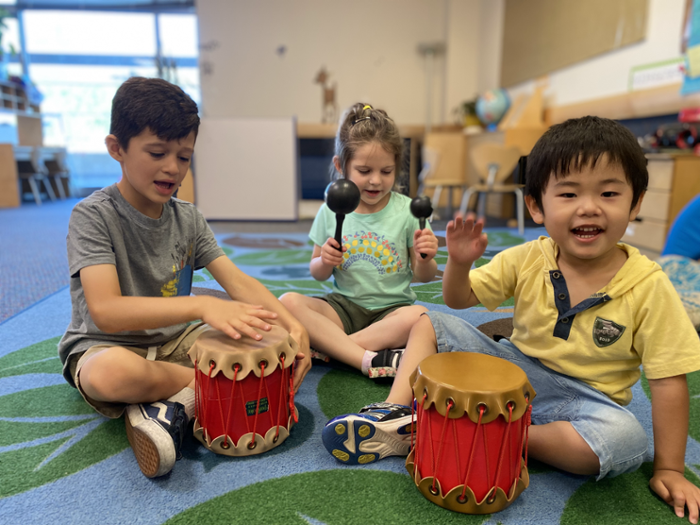Music can evoke powerful emotional responses in people – a gentle lullaby can soothe your fussy baby to sleep, and a ballad can alter your mood and help relieve stress. Moreover, people use music every day to enhance or diminish emotional states. And, as it turns out, music can also impact cognitive development in children.
Music can enhance brain development, helping children pick up the sounds and meaning of words and strengthening memory skills. Here’s why developmental music skills are so crucial for a young child.
Musical Training and Cognitive Development
A child’s brain is a fascinating thing. The quality of a child’s experiences in their first few years of life can shape how their brain grows and matures over time. These involvements determine which brain connections will develop and persist for a lifetime. This is where music comes in. Music ignites all areas of a child’s brain development, particularly those that govern language acquisition and reading skills.
Developmental music skills improve with age:
- Infants can recognize a melody long before they can understand the words, which is why lullabies work so well. Keep the tunes short and simple. It’s also a good idea to have a tune for every activity. This way, they’ll associate certain melodies with bathing, sleeping, or eating time.
- Toddlers love anything silly and repetitive. They also love to sing and dance. The toddler years are a great time to introduce nursery rhymes and songs about people, animals, places, and activities. Some children can also start musical training at this age.
- School-age children have the words to express their likes and dislikes regarding music. They may express an interest in specific instruments or genres of music, so it’s essential to expose them to as much music as possible.
Importance of Developmental Music Skills
Apart from enhanced cognitive development, there are several essential benefits to exposing your child to music.
1. Development of fine and gross motor skills
You can’t help but move your body to certain songs. Bopping, tapping, and dancing to a beat aid in motor skills development and control. In addition, music can help your child’s muscles get attuned to moving in specific ways, mainly because it encourages movement. In doing so, music also helps fine-tune the connection between the brain and body.
2. Enhanced language and vocabulary
It’s said that children’s brains are like sponges, absorbing every little thing they’re exposed to. Songs and rhymes can significantly expand your child’s language skills and help them correctly use certain words and expressions. Through repetition, nursery rhymes help children learn word association and how words can be placed together.
3. Enhanced auditory perceptions
Children learn to distinguish certain sounds early on. Playing an instrument is a multi-sensory experience that activates multiple brain areas simultaneously. For example, developmental music skills help children detect pitch and melody changes much faster. It’s also easier for children to pick up musical talents at a relatively young age, as kids have a heightened sensitivity to sound.
More importantly, music brings joy. Most people experience the joy of music long before they ever learn how to read and write. In essence, there are no downsides to music.
Contact our Childcare Center
Contact us to learn more about our early childhood education programs in Drexel Hill and Woodlyn locations, you may visit us at our contact page.

